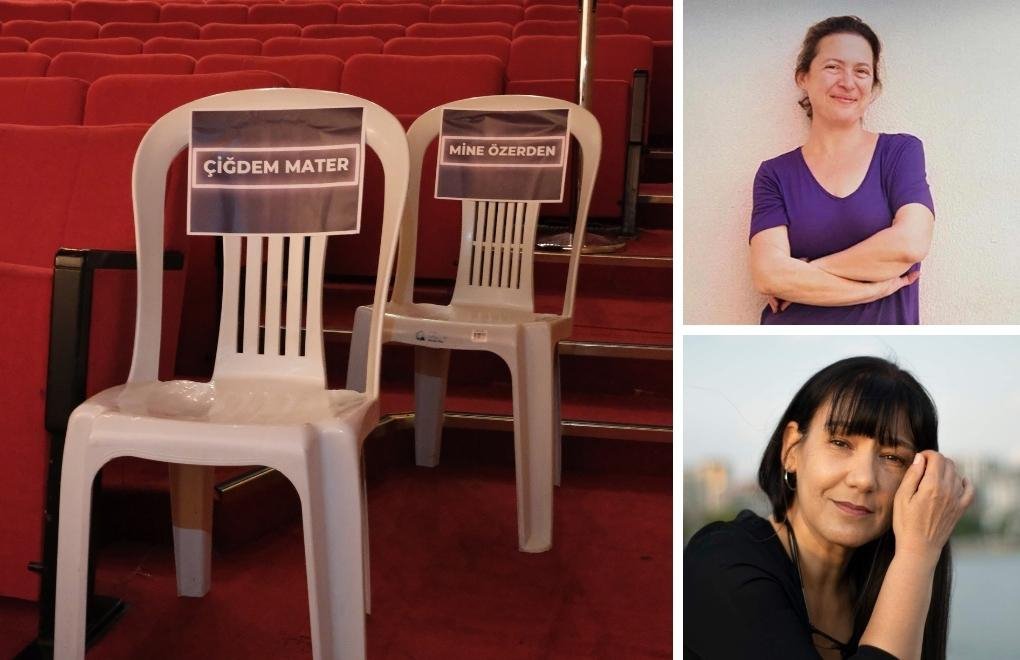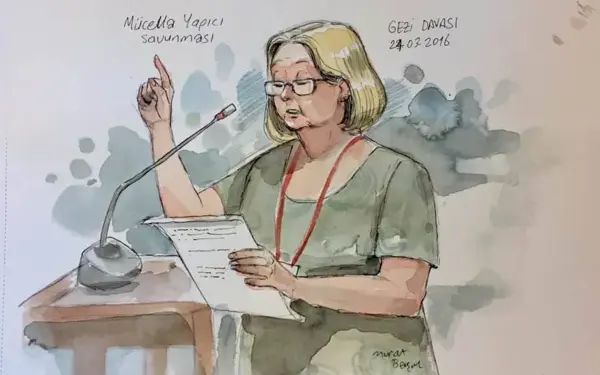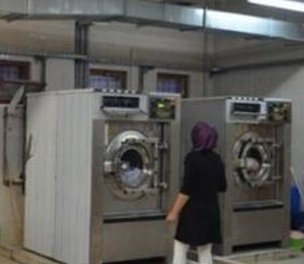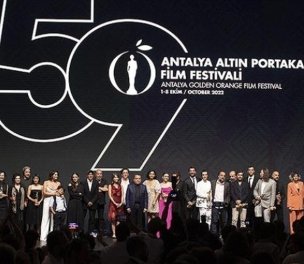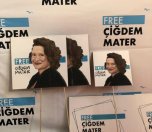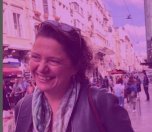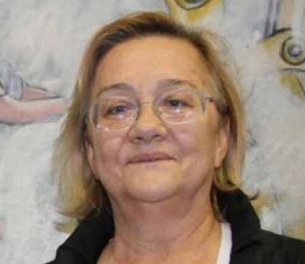The 59th Altın Portakal Film Festival is taking place in Antalya, southern Türkiye, between October 2-8.
Film producer Çiğdem Mater and documentary filmmaker Mine Özerden, two convicts of the Gezi trial, are not forgotten by fellow filmmakers, who express support for them at ceremonies.
Baran Seyhan, the Producer of "Hara", one the films competing in the National Feature Competition, used his time on Monday (October 3) before the screening to address Mater and Özerden, who are currently incarcerated in the Bakırköy Closed Women's Prison in İstanbul.
"Unfortunately, two of our colleagues are not here, they are in Bakırköy, but there are two iconic white plastic chairs for them," he said. "For Çiğdem Mater and Mine Özerden. Their place is not in Bakırköy, but in this room at the Antalya Film Festival. Although they could not be here at the screening, those two chairs will be here for Çiğdem Mater and Mine Özerden."
The two chairs will remain in the screening room until the end of the festival. During the festival, different filmmakers have addressed the empty chairs.
Haşmet Topaloğlu, the producer and screenwriter of the movie "Ayna Ayna" stated that although he was happy to have such a large audience, looking at the empty chairs reminds us again of Mine Özerden and Çiğdem Mater. Burak Çevik director of the film "Gidiş O Gidiş" pointed to the chairs and reminded the audience that they were tried as innocent.
The two are part of the so-called "Gezi 8," the eight convicts of the controversial Gezi Park trials.
The Gezi convicts
On April 25, prominent businessperson and rights advocate Osman Kavala was sentenced to aggravated life imprisonment for "attempting to overthrow the government." The other seven defendants, including Mater and Özerden, were found guilty of "aiding" him and sentenced to 18 years in prison. Both filmmakers had also worked for Anadolu Kültür, a non-profit cultural organization founded by Kavala.
In 2013, unprecedented mass demonstrations and civil unrest erupted after the police used excessive violence against a local sit-in at Istanbul's Gezi Park. The activists protested against the government's plan to demolish the centrally located park to build a replica of an Ottoman-era military barracks.
In the following weeks, around three million people across Turkey went out on the street to protest a wide range of issues. The Gezi protest turned into a larger opposition movement. In addition to protests against the government's urban planning, many people came out to speak out against the government's intrusive practices regarding diverse lifestyles, freedom of the press, and democratic and individual rights.
In the years after the protests, an İstanbul Court put Kavala and other civil society members on trial on charges of organizing and sponsoring the protests. Kavala indicated that he had supported and attended the protests but did not have a part in organizing them, nor did he intend to overthrow the government.
During the first trial, Kavala and the other defendants were acquitted in February 2020 because of lack of evidence. However, on the Kavala was immediately arrested again with new charges. The European Court of Human Rights (ECtHR) consistently ordered Kavala's release, which Türkiye's government has refused.
"Thought of making a movie"
Filmmaker Mine Özerden, worked as a coordinator at Taksim Platform, a non-governmental organization established in 2011 against the urban transformation project in Taksim Square.
During the trial in April, she questioned the difference between the indictment she was previously acquitted from and the one she is now in court for. Çiğdem Mater, in an interview in June earlier this year, said, "What we are experiencing in our is a big joke, but is it laughable?"
According to the Mater, she got sentenced to 18 years of imprisonment for three phone calls and the 'thought of making a movie', which made her wonder what would have happened if she had made the movie. (WM/VK)




